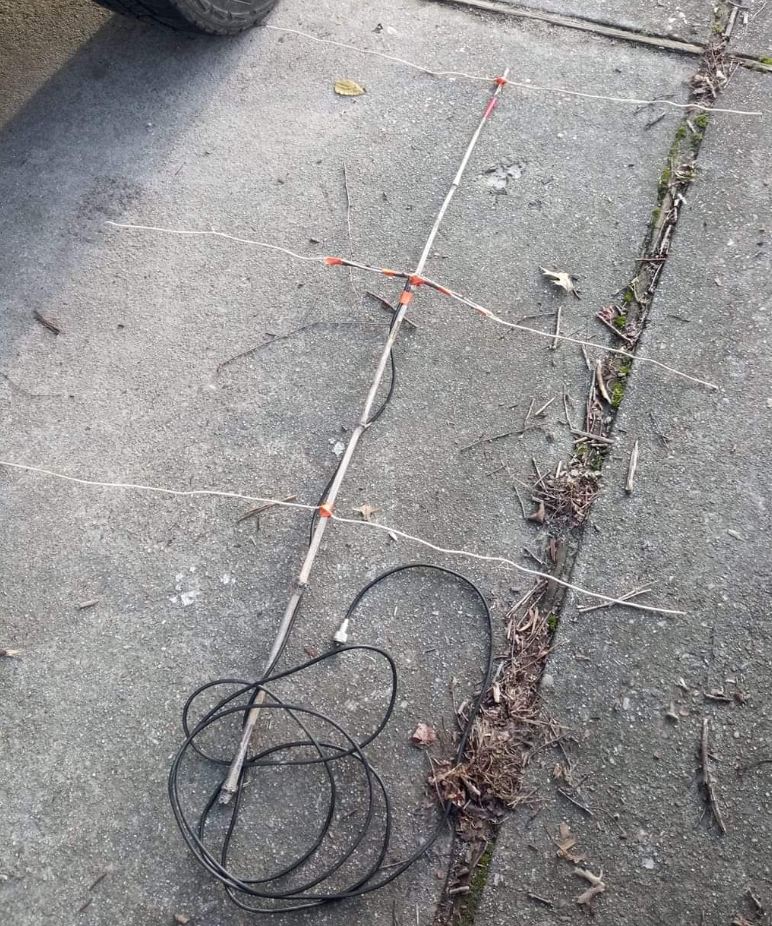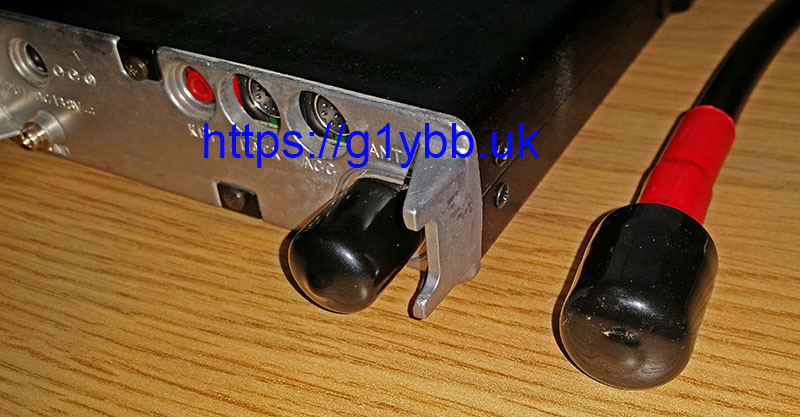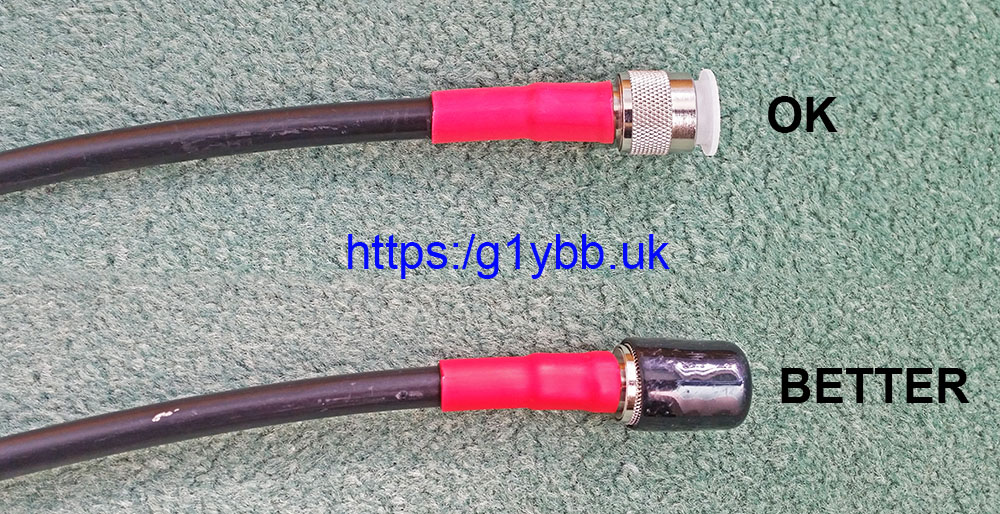VHF Contesting hints, tips and guide for starting out in HF, VHF & UHF contesting and things for keeping your equipment in great shape. I’m no expert, but I have been VHF contesting since the 90s (with a break) and have made most of the mistakes one can, and won a decent share of contests too. So I thought I would pass on some of the things I feel are useful to do well in VHF and UHF contesting.
So, What do you do then?
In a nutshell nothing more than exchange some information with as many other contesters as possible over the duration of the contest. On VHF that is typically a signal report, a sequential number, one per QSO and your six figure QRA (Maidenhead) locator. Some also have postcodes or other information, stated in the rules. If you don’t know your QRA locator it’s easy to find from such sites as this one:
http://k7fry.com/grid/?qth=IO82PA&t=n
How do I do it?
There are two main ways to operate, running and search and pounce. Running is sitting on a frequency and calling CQ hoping people will come to you. New starters often prefer to search and pounce. This is just tuning around the band until you find people calling CQ Contest. You then ‘pounce’ on them, which is just calling them. A good tip is to listen for a while to see what information they are exchanging. Usually these running stations are looking for an efficient QSO so another tip is to note the QRA locator they are giving ready so you only have to log (more on that below) the signal report and their serial number (which you should also be able to plan as it will be one more than the previous QSO). Also, make sure your RIT is off or at zero and use the main tuning dial to tune the station in if on SSB, so when you call you are readable to the station
So, they might say:
“CQ Contest golf one yankee bravo bravo CQ contest”
or if finished a QSO with someone:
“thanks, QRZ golf one yankee bravo bravo”
just call with your callsign once:
“mike nine alpha bravo charlie”
The running station will then send you his report and information and be looking for yours.
Here is a sample QSO:
Notice the station G3SMT checked he heard my sent serial correctly, but otherwise did not repeat back to me what I said. I don’t need to know that, I sent it! He also sent his information clearly and concisely just the once. If I’m a good signal his end, and I have just said he’s 59 then likely as not I can hear him very well and get it all in one go. I could be suffering bad QRM in which case I will request repeats.
OK, sounds easy enough, let’s do it…
To get started there are several considerations to make but all are dependant on what you want from VHF contesting. Some people just enjoy “giving points away” which is calling people like G3SMT did above and not sending an entry in at all. You don’t have to. It can be a great way to work good distance on a modest home station as often the running stations have a good station in a good location and can hear you better than most stations. Or you might decide to go all out and try to win contests. Or maybe take part in club/team based contests and be part of a whole. The choice is yours. So these considerations then….
Location, location, location
Your location and/or take-off can have a massive effect on VHF/UHF. Obviously if you are a fixed station without moving house (and some people do!) you have what you have. Try to get the antennas clear of any obstructions of course. If you really have a poor VHF site at home then maybe look at portable. Even a modest hill can transform the performance of the same station set-up. With a good spot with good take-off you don’t need massive masts at all. On 144MHz I use just a 4m high mast but from a VERY good location and I do really well. At other locations I use a 6m mast and also do well.

Antenna
My ethos is big is beautiful! I want as long as possible on each band within reason. You want a decent gain and good performance, ideally an excellent match too. Pointless wasting permitted power by reflecting it back down the cable!
I’m a big fan of the DK7ZB designs and many of my antennas are home built to his designs.
http://www.qsl.net/dk7zb/start1.htm
Other designs are of course available and many places are selling commercial yagis made to modern computer optimised designs on the internet.
Radio
Most of us use the radio we have that covers the band. But if you can look for one that has a good dynamic range, that can deal with big signals and receive weak ones. It’s a big ask and most of the top stations use a high spec transverter with a top HF radio driver. However, the other other end of the coax in the picture above has a little Yaesu FT-817 at the end! Be sure not to overdrive whatever radio you use, other contest stations will not appreciate it and some stations I have worked are so turned up to number 11 I can barely make out what they say.
Logging
Computer logging, while not essential, makes things so much easier and faster. Instant dupe checking and aids like headings for the beam based on QRA locators. Also the ability to export the entry files easily. These days of tablet PCs you can take PC logging with you anywhere.
My favourite free option for VHF is Minos:
https://g1ybb.uk/entering-rsgb-vhf-contests-with-minos-logger/
Another free program that will do VHF and HF is N1MM+, though I will say it (for me) requires more setting up. But it is very powerful and will integrate with many other programs, like datamodes and CW readers etc.
https://n1mm.hamdocs.com/tiki-index.php
Finding the contests
The majority of the UK based VHF and up contests are run by the RSGB. The current calendar can be found here:
https://www.rsgbcc.org/cgi-bin/readcal.pl
One of my favourite contests is the Practical Wireless QRP contest. PW contest info is here:
http://www.pwcontest.org.uk/
Worked All Britain also run VHF contests, their calendar is here:
https://wab.intermip.net/Contest%20Dates.php
That’s it, you’re ready to go contesting. Have fun!
Hints and Tips.
Contesting is competitive by nature so once you have caught the bug the natural progression is you will want to do better. I believe attention to detail is paramount.
Use the best coax you can afford to get every drop of signal in and out. Don’t have loads of spare feeder length if you aren’t going to need it.
Keep your yagis in good shape. Whilst the yagi below will work, I cannot believe it will work as well as it would if all the elements were dead straight and all in line in all planes. The difference might be a fraction of a dB but every fraction improvement added together can make a difference.

I keep my RF connections clean. Of more importance to a portable operator than a fixed station maybe, but personally I don’t think dirt, grass, spiders and other rubbish are very good RF conductors. It may not make a difference, but it definitely will not do harm.
 I also use adhesive lined heatshrink on my feeder connectors to both waterproof them and stop movement between the coax and connector which leads to faults.
I also use adhesive lined heatshrink on my feeder connectors to both waterproof them and stop movement between the coax and connector which leads to faults.
Edit: This week for May 2019 50MHz UKAC it had been raining during the day and the sheep are out in the field I use. I was coiling up the feeder to pack away in the dark and when the end came into view I could see it had managed to completely submerse itself in fresh sheep poo! The entire black rubber cap was covered in it. That would have all been in the threads and centre pin and made a right mess. As it was I just wiped off in the wet grass and dried it off with a tissue.
This backs up the above and also reminds me that the over the outside cap is best option:

Practice makes perfect.
Operating is one of the areas that can really make a difference. Different operators with the exact same equipment at the exact same spot can achieve vastly different results. Contests have fixed duration so speed is of the essence. More is good. Faster is good. But not at the expense of accuracy. Pointless making a dozen QSOs in a few minutes if they are all discounted due to errors. Do double check the difference between 55 or 59 which can sound the same.
Make a call on the exchange style based on the caller.EG, here is a strong station who is a known good operator:
No repeating of information is required either end. Both of us know the other will get it first time, and both stations know the other will appreciate expedience.
Another QSO example with a weaker more distant station, and also right in the last throes of a contest so with some urgency too! Repeats given my end to try to ensure QSO completes before the clock runs out.
Do use the technology available and permitted. ON4KST chat is permitted in many contests and is an extremely useful tool for attracting more QSOs. Not using it to be ‘old school’ is self imposing a handicap for no reason, in my opinion. I always use it if replies to my CQs are drying up. It is especially handy for seeking out new multipliers or bonus stations.
Later versions of Minos have features like memories where you can store the call and frequency of other run stations. Coupled with CAT control this can enable you to quickly and efficiently jump to other frequencies to work a new station and be back to your run frequency efficiently.
Use the other VFO if your radio has it. I have often called another run station, heard him take another caller, flipped back to my run freq, called, worked a station, and returned to the other station in time to hear him coming back to me. That’s an extra QSO for me. It needs practice and a feeling for how the other run station operates to not ‘miss your slot’ and be less efficient.
Look after the operator.
The operator wants to be fully focused on his/her game. They do not want to be battling with the weather, struggling with cold stiff fingers, or any other distractions. Ergo, apart from backpacking contests I always use a rotator, I have good lighting and if really cold, add heating. I don’t want to be opening windows into the cold and lashing rain or snow in order to turn my beam. I take a comfort break 5 minutes before the contest starts and usually do not move from the ‘hot seat’ until the contest ends, including backpacking 7 hour contests.
Never quit early! Very often even when it seems as if there is no one left to work you can work new stations and multipliers right at the end. It happens all the time. The last UKAC I did was hard work in the last half hour but in literally the last 2 minutes I worked 2 new French squares for 866 QSO points and 1000 bonus points with one of the QSOs being my ODX for the contest. That was 8% of my total score in the last 90 seconds or so! My last QSO was nearly 10 minutes before. I could easily have thought sod it and let’s go home.
Last word…
Enjoy it! If you do all the contests in the calendar it can seem like a full time job! Especially doing 6 UKAC events a month plus weekend contests. Add in HF and you have divorce grounds right there!
But whilst I like to take it seriously and do my very best to win, you can still have fun doing so. One QSO from a backpackers contest:
73 Steve G1YBB/P or GW1YBB/P normally.